12 Pros and Cons of Living in Christchurch [2024]
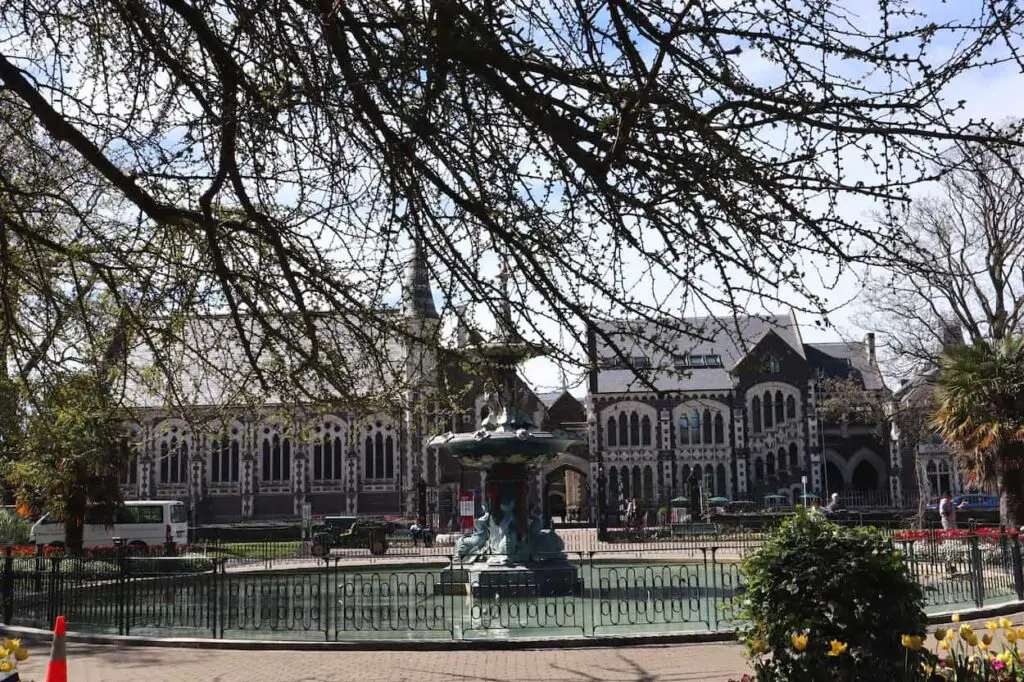
Considering moving to Christchurch? While most people think first of Auckland or Wellington when relocating to New Zealand, Christchurch, also known as Garden City, deserves your attention.
Christchurch (Maori Ōtautahi) has it all – affordable housing, an urban atmosphere, next-door nature and adventure, plenty of jobs, and quality education. Christchurch will suit everyone, a student, a professional, or a family.
With a population of almost 400,000 people, Christchurch is the largest city on South Island and the second largest in New Zealand. Christchurch is the gateway to New Zealand’s best adventures, where you have all the spectacular scenes at your doorstep. However, it’s also a fantastic place to work and study.
I am currently living in Christchurch, and the pros mentioned in this article were the main reasons for moving here, but also the fact that it’s home to one of the best universities in NZ – the University of Canterbury.
About Christchurch
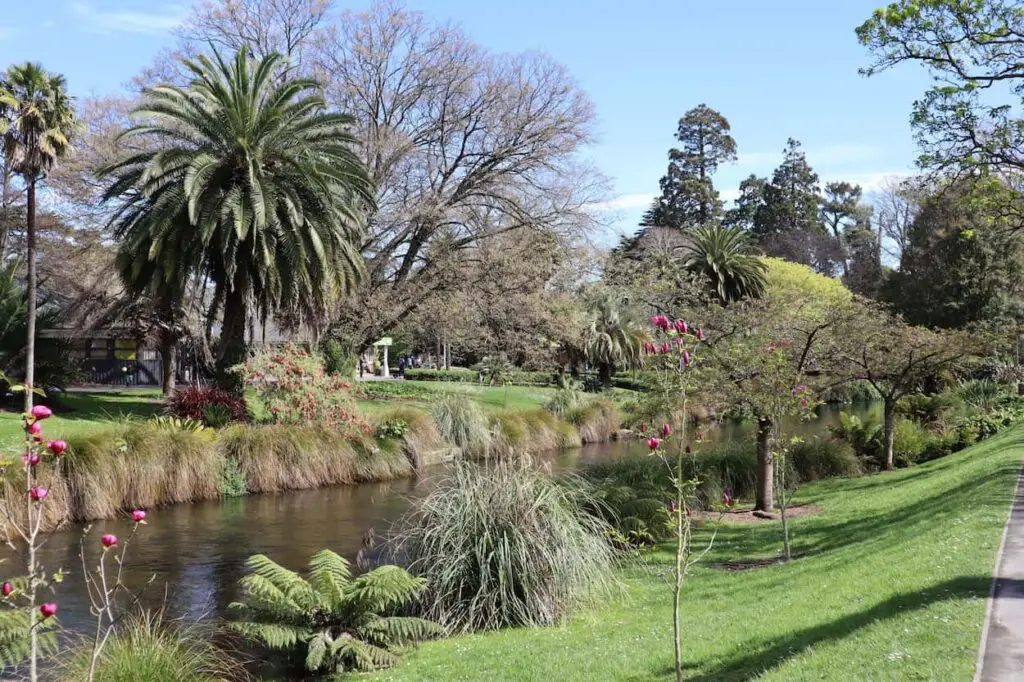
Before we jump to the pros and cons of living in Christchurch, here is some interesting information about the city:
- Population – 369,006
- Median age – 37.1 years
- Number of Maori – 36,642
- European ethnic group – 77.9%
- Māori ethnic group – 9.9%
- Māori descent – 11.5%
- Employed full-time – 50.3%
- Unemployed – 3.8%
- Born in New Zealand – 72.9%
- Born overseas – 27.1%
- Median income – NZ$32,900
- Income over NZ$70,000 – 16.5%
- Homeownership – 52.0%
- Median weekly rent – NZ$350
- Median house price – NZ$500 – NZ$600
Source: 2018 Census
In the graph below, you can see where the majority of foreigners in Christchurch are coming from.
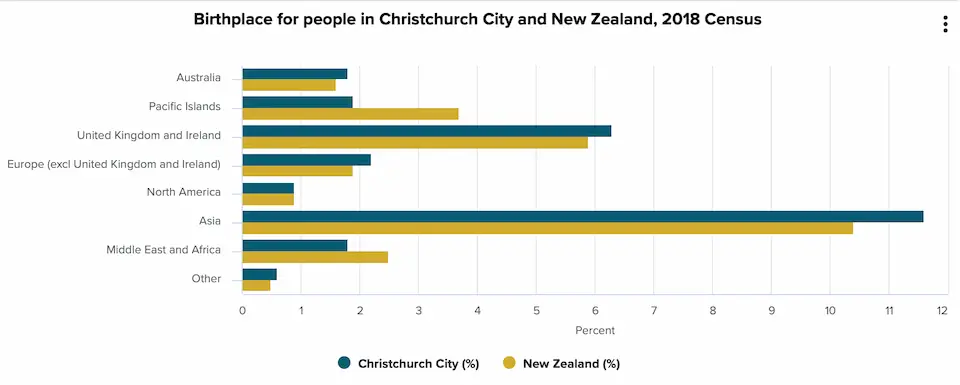
But what do Christchurch residents do for a living?
- Over 22,5% are professionals
- About 14% are technicians and trade workers
- About 15% are managers
- 10% are community and personal service workers
- Almost 10% are labourers
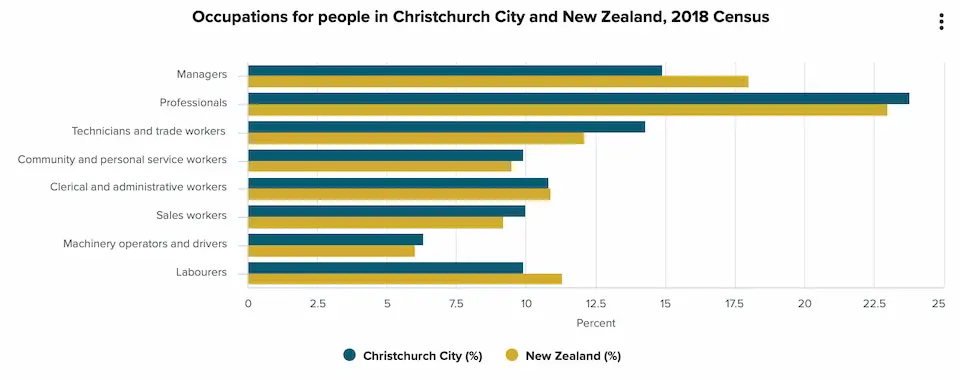
The Maori word for Christchurch is Ōtautahi. Christchurch is situated on the South Island’s east coast, just north of Banks Peninsula on Pegasus Bay. Christchurch was founded in 1848 largely, and the city was called after Christ Church in Oxford. The original immigrants arrived on five ships in 1850–51.
The city is also called “Garden City,” where the beautiful Avon River flows through the city, with parks and gardens along its banks.
Generally, it’s a great city for everyone, whether you are looking for a job, a place to study, to start a business, or to retire. Some parts of the city offer a better lifestyle than others; for example, the Banks Peninsula is a naturally stunning location with sea views giving you the best of both worlds.
At the same time, neighborhoods like Riccardon, St Albans, or Merivale offer comfortable and quiet city living with all its activities.
Main industries
Originally, Christchurch and the surrounding area were known for agriculture, traditional meat-freezing works, and woolen. Later on, its industries have grown to manufacture clothing, carpets, rubber, wood and cork goods, transportation equipment, tires, soap, fertilizers, glass, footwear, and flour.
Nowadays, you can find any trade within the city. From tech startups to butcher shops, Christchurch is a mix of everything.
In addition, the city’s port is Lyttelton, which is only 15 min away from the CBD and has one of the largest ports in New Zealand. The port’s exports include coal, wool, meat, dairy products, and wheat, and imports are petroleum products, fertilizers, iron, and steel.
Should you move to Christchurch?

Moving to Christchurch might be a good option for some and less good for others. Christchurch is the largest city on the South Island, with incredible scenery, climate, and people. It also offers opportunities in various industries for skilled workers and study options across all areas.
Pros of living in Christchurch
1. Climate and weather
Christchurch has an amazing climate if you are from Europe, the US, or Canada. It has all four seasons with few rains and a lot of sunshine. The climate is generally dry without crazy subtropical rains like you get in Auckland.
Christchurch Summers are pretty amazing – very warm, to hot and dry. The average temperature is between 20°C and 28°C. Winters are slightly cold, with occasional minus degrees during the night. The temperature ranges from -1°C (at night) to 12°C.
It rains less during the winter. In between seasons, it’s warm and sunny with occasional rains.
Lastly, Christchurch gets about 2142 hours of sunshine, which is more than you will get anywhere in Auckland and Western Europe or Canada, for example. And the average annual rainfall in Christchurch is only 635 mm, while in Auckland, it’s a whopping 1198 mm.
2. Greenery and proximity to nature
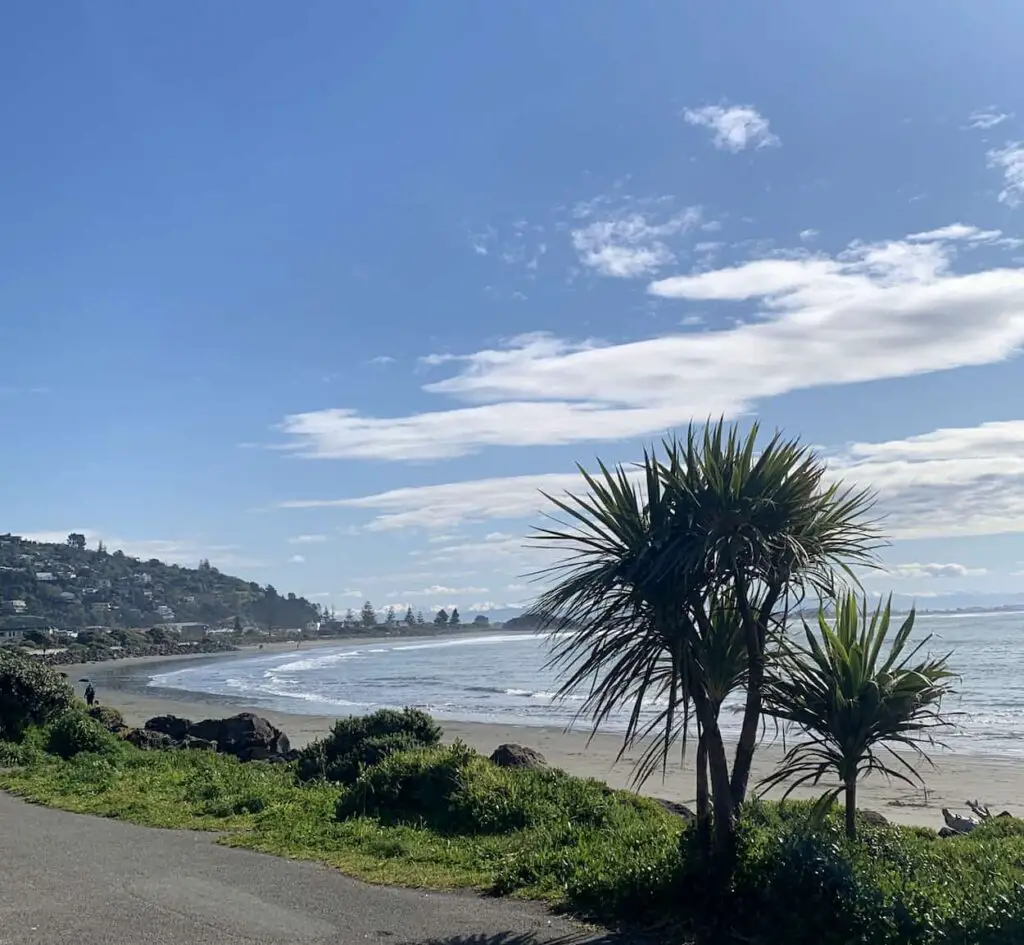
When living in Christchurch, you are very close to nature, be it the stunning Port Hills of the city, Akaroa, or even cute Kaikoura. You can easily reach nature of some kind by bike or car. Moreover, South Island is the best place for road trips, so get ready to enjoy your weekends!
3. Outdoors

Christchurch is a great city to live in if you love the outdoors. This includes walking, running, hiking, biking, skiing, watersports, and many more.
The Canterbury region in itself is your getaway to all that South Island has to offer. You can either drive by car or take a flight to the stunning Southern Alps, Mount Cook National Park, Arthur’s Pass National Park, and the Mount Hutt ski area. Famous Queenstown and Wanaka are also within a short flight away. Resort areas like Hanmer Spring and Kaikoura are only a 1,5 to 2,5 hours’ drive away.
4. Affordable house prices
Christchurch has lower house prices than cities like Auckland and Wellington. Moreover, many homes are newly built due to the major reconstruction of the city, hence, you can purchase a new place at a good price.
Also, read about the cost of living in Christchurch, it’s pretty affordable!
According to Opespartners and CoreLogic, the average price of a Christchurch property is $735,000 as of March 2023. To compare, the average property value is $874,000 in Wellington, and in Auckland, the average property value is $1.308 million, and the median sale price is $995,000.
Besides house prices, rents are also significantly more affordable in Christchurch, where an average two-bedroom home is rented for $500 – $550 per week, and three-bedroom starts at $550 per week. The average rent is $510 per week, according to Trade Me. In 2018, rates were even lower, as shown in the graph below.
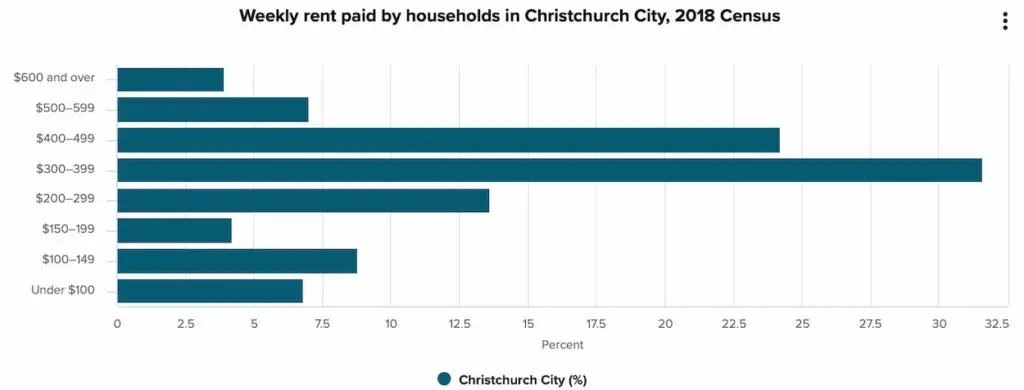
5. Short distances
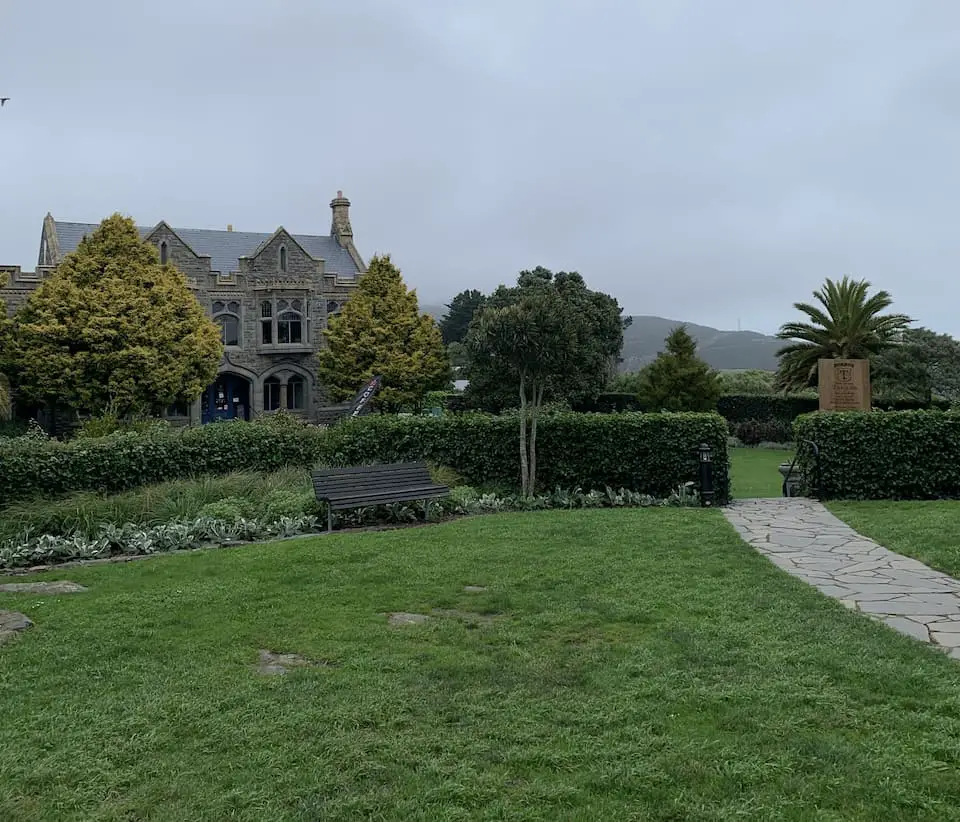
Christchurch might seem to be a large city (yes, it takes up 1,426 km2), but everything is just 20 min drive away. Even if you live on the outskirts, you can reach the city center within 15 – 20 minutes.
Christchurch has some of the most stunning neighbourhoods like Cashmere, Redcliffs, Sumner, and even the city Lyttelton, which is still not more than 20 minutes away from the city.
Short distances and reachability make a living in Christchurch stress-free and enjoyable. It has a great neighborhood-like vibe to it despite being a large city (for NZ standards).
6. Job opportunities
Since Christchurch is the largest city on South Island, it’s also home to many businesses across various industries. The construction field is one of the largest due to the construction boom that is currently happening in the city.
It started after earthquakes that shook Christchurch between 2010 and 2012. Many buildings were demolished, and the construction industry has been rapidly growing since then.
That said, you can find a job in Christchurch in almost any field, including:
- Finance
- Technology
- Manufacturing, transport and warehousing
- Management
- Engineering
- Construction
- Real estate
- Healthcare
- Food and Agriculture
At the moment of writing (July 2023), there are 2,611 open positions only within the city itself!
Read more about job prospects in various NZ cities.
7. Great study opportunities
Besides excellent job prospects, Christchurch is also home to the second oldest university in New Zealand, the University of Canterbury. It’s also one of the largest universities in New Zealand, with about 20,000 students enrolled.
The University of Canterbury isn’t the only option if you want to study in Christchurch; there are several colleges and polytechnics offering high-quality programs at affordable rates. Ara Institute of Canterbury is one of the best places to get a hands-on qualification in Canterbury.
Cons of living in Christchurch
There are always a few cons to the pros.
1. Seismic activity – Earthquake probability
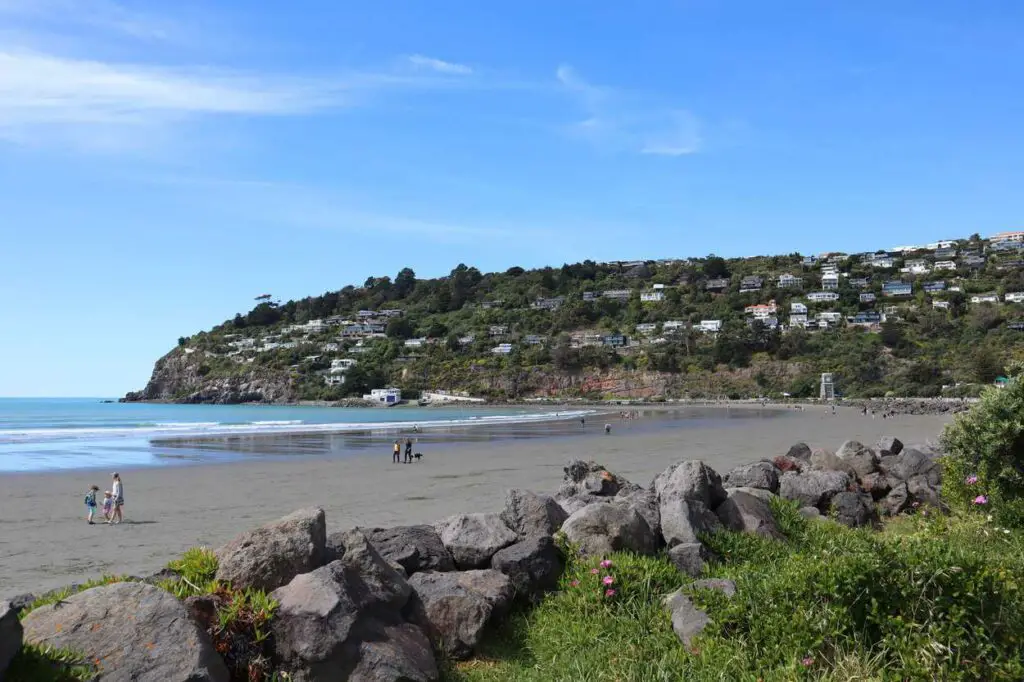
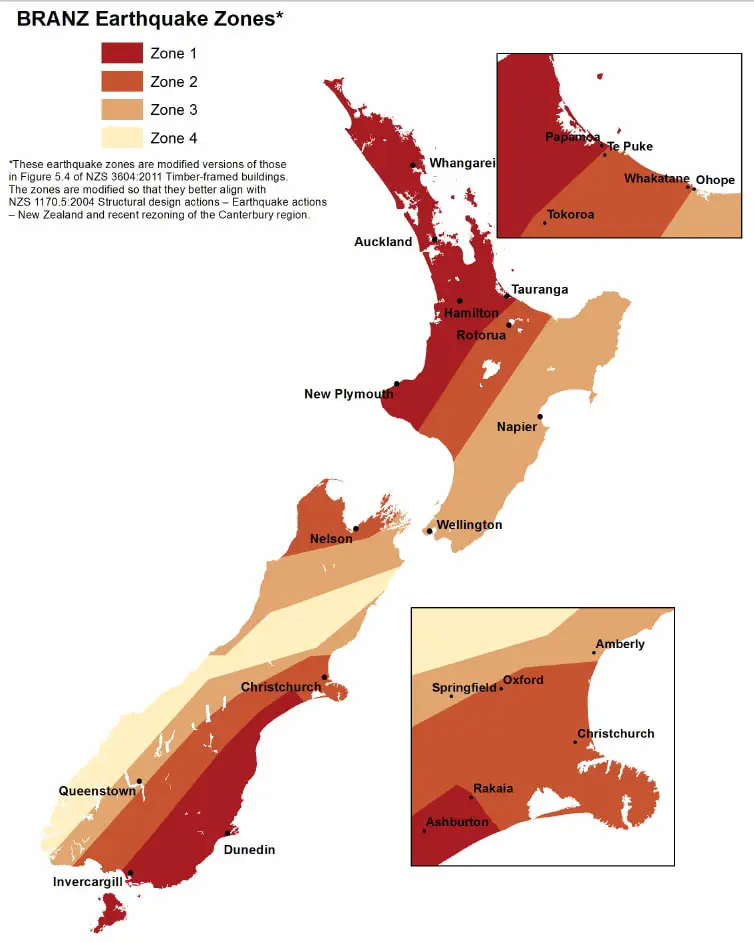
Christchurch and its surrounding region lie in the seismic active zone. There were several major earthquakes between September 2010 and January 2012, which damaged the city’s buildings and killed people.
Because of the earthquakes, 1,500 buildings in the city had been demolished, leading to ongoing recovery and rebuilding projects by late 2013. Up to 50,000 residents moved permanently to other locations in New Zealand or Australia.
However, many parts of New Zealand have the same problem. For instance, Christchurch’s seismic hazard level is comparable to Wellington’s for medium-intensity earthquake shaking. Therefore, you shouldn’t be afraid of earthquakes in Christchurch, as they can happen in other places too. Additionally, the probability of a major one is pretty slim.
2. Rising house prices
While some cities and regions have seen a drop in house prices in the past two years, the Christchurch property market has stayed strong and has seen less of a decrease. House prices continue to rise, making the life of first-time home buyers more difficult. With the average home price of $770,000, saving for a deposit will take a significant amount of time.
3. Lower salaries
After extensive research, I can’t deny that salaries in Christchurch are generally lower than in Auckland and Wellington. On average, you will have a lower wage in Christchurch, even when working a high-profile job.
For example, in a managerial position in finance, one gets $120,000 – $170,000 in Auckland vs $115,000 – $180,000 vs $110,000 – $180,000 in Christchurch.
Salaries are also determined by the housing market and cost of living. Since Christchurch houses are more affordable, you will also get paid less. Makes sense.
You can read this article about salaries in New Zealand, where I give an overview of the pay across these three cities.
4. Structure of the city
Some people mention that Christchurch isn’t really a city as it has a very provincial atmosphere. It’s because the city landscape is vast, spreading over 1,000 km2. It has long, wide streets with single to double-story houses. You will see no high rises in Christchurch.
For that reason, it takes a lot of land area to build homes, so people have enough space to themselves. Every suburb is very decentralized, with its own infrastructure and entertainment options.
5. Rebuild mode
Christchurch is still in the process of rebuilding after several earthquakes. Therefore, you will see plenty of site works around the city. In addition, some areas of the city, especially in the CBD, stay entirely empty after the earthquake. This affects the picture of pre-earthquake cozy and historical Christchurch and seems to be less attractive & eye-pleasing.

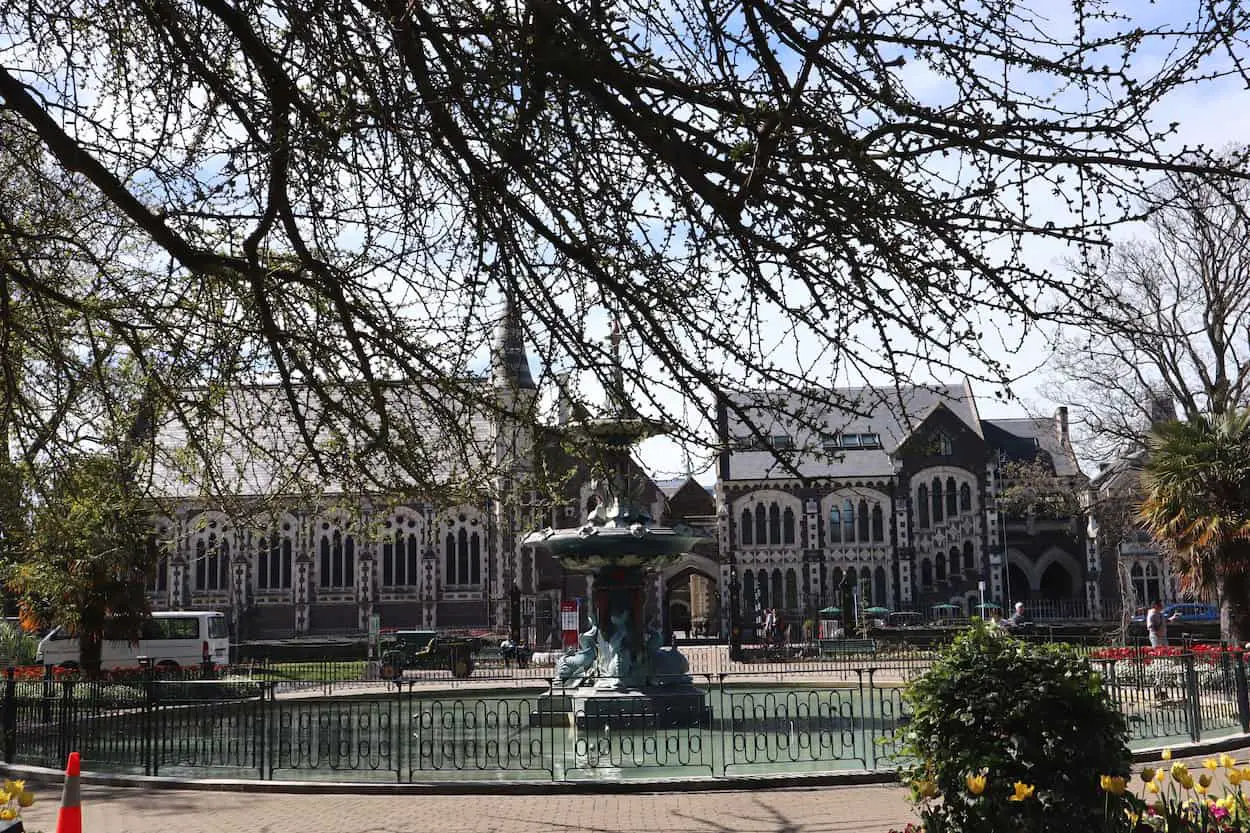

![Working Remotely in New Zealand for a US Company [2024]](https://simplenewzealand.com/wp-content/uploads/2023/06/pexels-anna-tarazevich-14751273-1-768x512.jpg)
![MyMSD: All You Need To Know in 2024 [+Setup]](https://simplenewzealand.com/wp-content/uploads/2023/05/phillip-goldsberry-AHIA8Bs_HA-unsplash-1-768x512.jpg)


